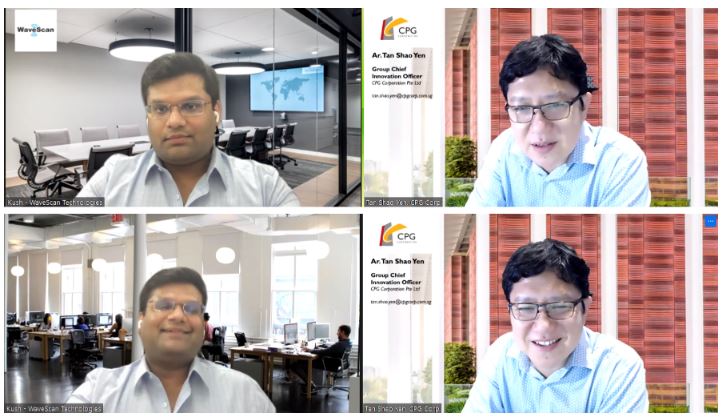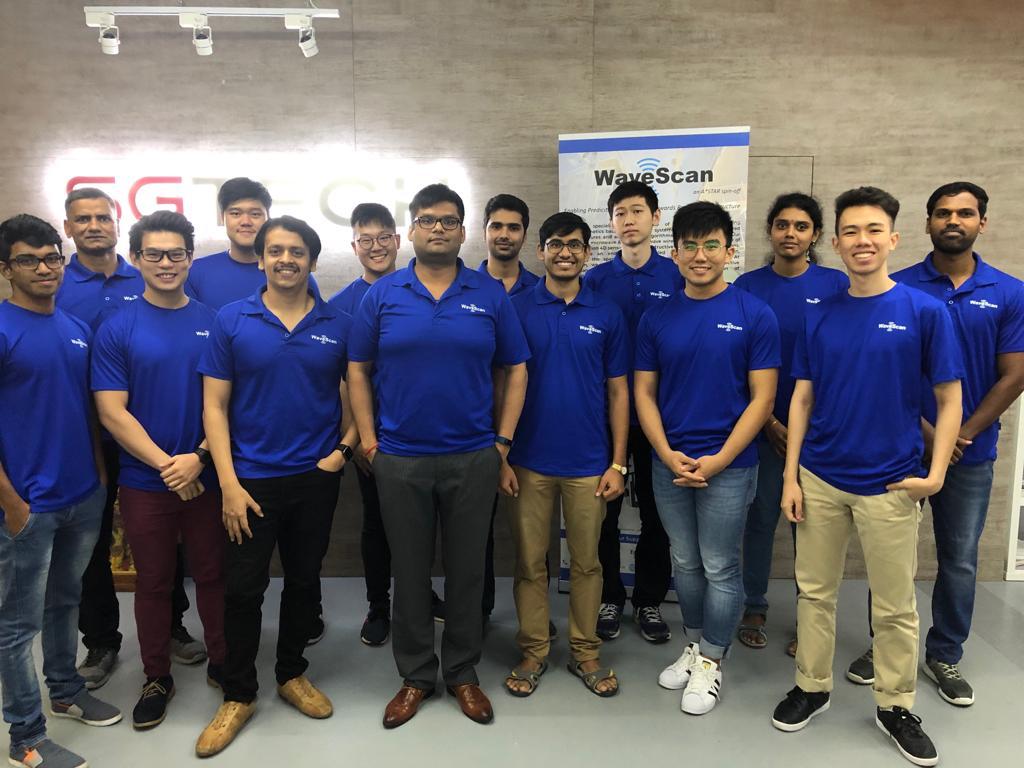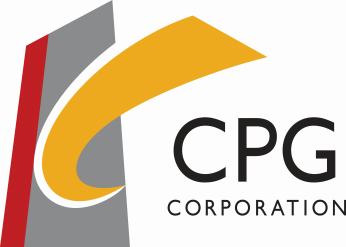A Conversation with…Ar. Tan Shao Yen and Dr. Kush Agarwal

Conversation with… is a series of articles featuring personalities within CPG Corporation and its diverse partners who inspire.
The 10th Lee Kuan Yew Global Business Plan Competition (LKYGBPC), organised by Singapore Management University’s (SMU) Institute of Innovation and Entrepreneurship (IIE) has been titled ‘Reimagine Smart, Sustainable and Resilient Cities’, with various verticals on sustainable urban innovations.
We sat down with CPG Corporation’s Group Chief Innovation Officer Tan Shao Yen, a mentor in the competition, and home-grown WaveScan’s Founder Dr. Kush Agarwal, one of the teams from the revolutionary top 50 cohort, and the winner of the inaugural SMU Chancellor Cup, to hear more on their individual experiences during the recent competition.
Editorial: Hello Dr. Kush Agarwal and Ar. Shao Yen! It’s great to speak with both of you. Tell us more about your role and aspirations having participated in the LKYGBPC this year.
Ar. Shao Yen: As the Group Chief Innovation Officer of CPG Corporation, other than to facilitate innovation within CPG, it is of equal importance to keep abreast of the innovation that is taking place in the marketplace, tertiary institutions, and incubation organisations. First, it provides a great opportunity for me to find out what I do not yet know; second, the insights gained would lead me to consider how some of the innovation may lead to solutions for the urban and built environments. The LKYGBPC is one such excellent platform for me to get connected with innovators and entrepreneurs, such as WaveScan and Dr. Kush Agarwal, amongst others.
Dr. Kush Agarwal: One of my key focuses as a startup founder is to put WaveScan through external analysis & feedback, which helps me learn from fresh outside perspectives. Joining international startup competitions with good visibility and links to the startup ecosystem like LKYGBPC helped me connect with partners and start new conversations with a few target venture capital funds. We were also connected with mentors from relevant industry verticals, like Ar. Tan Shao Yen. For me, they have shared their life experiences to help frame new perspectives and industry-related expertise.
Editorial: Dr. Kush Agarwal, congratulations to WaveScan for being the winner of the inaugural SMU Chancellor Cup. The SMU Chancellor Cup is a recognition of the most promising Singapore team representing a local university in the competition, can you share with us simply what your innovation does?
Dr. Kush Agarwal: At WaveScan, we are developing see-through non-destructive testing (NDT) sensor technology that enables early-stage detection of structural defects in the Built Environment (BE), besides other assets. Today, the BE sector uses traditional contact-based scanners that need humans to touch them on the surface & collect data manually. This is a tedious, time-consuming, and costly process, which has led the industry to lack proactive inspections & data-driven maintenance. We have developed fully contactless sensors that integrate into robots to automate the structural data-collection processes. Besides, as the data is collected, it's wirelessly transferred to computers for 3D image analysis & report generation, etc. Our scanners achieve high accuracy & end-to-end digitalization of the data collection, post-processing, analysis & reporting processes. As we're test-bedding our technology and collecting field data, we're also training our AI algorithms for automated defect tagging, aiming to lead towards data-driven asset management with proactive/predictive maintenance practices.
Editorial: Ar. Shao Yen, you were the mentor for WaveScan, how was your experience being a mentor, and how do you feel about the aspirations of these innovators? Correspondingly to Dr. Kush, how has the mentorship helped you from the mentee perspective, and what were some of the takeaways?
Ar. Shao Yen: Other than WaveScan that is from Singapore, I had mentored another team, LucidDrone Technology from the USA. They were at different stages of development. First of all, I really admire their spirit of learning, adventure, and enthusiasm. I do also perceive that they have put in lots of hard work behind it.
LucidDrone Technology integrated drone technology with several other technologies to target cleaning and disinfection of large-scale facilities, such as stadiums. What is interesting is that they have developed a business model that is cash flow positive from the start.
Wavescan is a local startup, spun off from A*Star. We know that as building age, the structural integrity may be weakened over time due to various reasons. So Wavescan made use of an A*Star developed microwave scanning technology to detect not only the surfaces of the building structure but also a few centimetres beneath the surfaces. By combining this sensing technology with other technologies such as drones and robotics, there is potential for structural inspection to be done much faster, safer, and cheaper.
As I am from the built environment sector, I shared with both teams the insights from the sector, such as the challenges, pain points, market opportunities, particularly in the Asia context. I have certainly also learnt a lot from them. We are not stopping here, we are continuing our conversation and engagement after and beyond the competition.
Dr. Kush Agarwal: We often develop the technology from an inventor or scientific perspective, where the end-user has an entirely different user mindset. One of the most important learnings from my mentorship sessions with the CPG leadership team is the go-to-market strategies and the product-market fit that we need to incorporate as we take WaveScan's technology towards full-scale commercialization. In a few mentorship sessions with Mr. Tan Shao Yen, we brainstormed regarding various use cases our technology would fit into the Built Environment's value chain. With the diverse presence of CPG in Construction Management, FM, Consultancy, and PE services, we are currently looking into various uses of WaveScan's technology as product sales/services in CPG's businesses.

Editorial: Dr. Kush, WaveScan’s solution is designed to shift paradigms in Inspection practices in the local BE environment, what was the progress like and have there been any practical applications?
Dr. Kush Agarwal: As a combination of our proprietary scanner hardware & software, we're providing end-to-end structural inspection technology. Over the last two years, we have developed our sensors & software to TRL8 level, and it has been validated through some client-specific use cases. Like other sectors that use inspections & maintenance, the built environment is also regulated, and the inspection equipment goes through a benchmarking, calibration & testing procedure using artificial mockups. We have demonstrated the uniqueness & usefulness of WaveScan's technology for use cases such as condition monitoring of reinforced metallic bars within concrete for cracks & corrosion, the intactness of insulation behind facades, facade delamination, and water leakages, among others. Now, with some Singapore & overseas clients, we are starting full-scale test-bedding of our technology in their ongoing projects, aiming towards adoption & scale-up of this technology. In parallel, we have also been closely discussing with Singapore's Building & Construction Authority (BCA) towards potentially fitting into the regulatory framework in the Singapore context.
Editorial: The theme for the LKYGPBC this year is ‘Reimagine Smart, Sustainable and Resilient Cities’. Drawing from your experience in the built environment industry, Ar. Shao Yen, what do you think are some of the technological advancements or trends that will contribute to achieving sustainable and resilience cities? How do you think innovations like WaveScan’s is relevant to the work you do in the BE industry?
Ar. Shao Yen: I believe that future smart and sustainable cities will display three common qualities:
First, future successful cities are not only liveable but also foster and build up High Trust; high trust within communities, between different communities, and between the people and the city governance. The pandemic has shown us, so clearly, how devastative when it is divisive and full of mistrust, and hence how important it is to have trust and solidarity. That is the foundation for the city to work together to forge common destiny, create jobs, build affordable homes, provide good education and social mobility options, good healthcare, excellent infrastructure, and create many other opportunities. I believe Singapore provides some useful examples in these aspects.
Second, the future city will have to channel its spirit of solidarity towards innovation and entrepreneurial culture and outcome. That is how cities thrive and continue to attract both capitals and talents to stay relevant. This is the driving force needed to propel many of our industry transformation roadmaps and alliance for actions. In this sense, Singapore is shaping up well as a city lab to test smart, sustainable, and resilient urban solutions.
Third, the future city will harness all their energy and resourcefulness towards not only protecting but regenerating the environment. Future cities will have to be biophilic, embracing nature in its urban fabric, as well as being net-zero carbon, otherwise, all the other qualities can no longer be sustained by our planet. Again, I am pleased that Singapore has formulated the Singapore Green Plan to step up.
So to me, the future city is in fact, not too distant. We are at it now, and need to take action to shape it as a collective endeavour. And one of the actions for us as experienced built environment professionals is to step up our efforts on learning, R&D, and collaboration with like-minded partners including startups like WaveScan. The exponential growth of information and knowledge simply means that it will be far too slow and too restrictive for individuals and companies to try and find most of the answers within. The more effective approach is to find effective ways to collaborate with other innovators.

Editorial: This question is to both of you. More Singaporean start-ups are hoping to create not just a meaningful impact locally but also on a global stage. WaveScan for example, was recognised as one of the top 10 Construction start-ups in 2020, how do you think a multi-disciplinary consultancy like CPG can continue to help nurture innovative entrepreneurs in the BE landscape both locally and to venture overseas?
Ar. Shao Yen: I think finding a forum to allow the interaction and connection to take place is very important. Taking the LKYGBP as a good example, the mentorship programme and the Blaze process provides a good forum for the entrepreneurs to pitch and test their technological innovation and business ideas to be advised by a diverse range of experts, including BE industry stakeholders such as CPG. Together with other experts, we would share with the start-ups various perspectives, e.g. market sector knowledge, regulatory compliance, consumer psychology, investor expectation, commercialisation process, etc.
I believe the wealth of inter-disciplinary insights that the entrepreneurs can gain in a short span of time, is invaluable. In addition, I also believe that the forum provides excellent networking opportunities for the entrepreneurs to explore collaboration with industry stakeholders after and beyond the programme, including initial commercialisation and thereafter internationalisation.
Dr. Kush Agarwal: With decades of experience and its project portfolio spanning over 25 countries, CPG is an ideal partner for WaveScan to look up to. Early-stage adoption of new disruptive technologies, particularly in laid-back sectors such as in the BE is challenging. Multi-disciplinary consultancies such as CPG, with their strong influence on diverse stakeholders that form the BE, can accelerate & support technology adoption. With CPG's accumulated expertise & understanding of the industry's pain points from every stakeholder's perspective, early-stage startups such as WaveScan can co-develop solutions that enhance the productivity & practices of the BE landscape at a global scale. With timely, strategic investments, corporations like CPG can fuel the growth of startups at the right moment by bringing smart money and opportunities to the BE startups. This way, we can accelerate technology adoption & create a win-win synergetic collaboration between BE corporates like CPG, and BE startups such as WaveScan.
Editorial: Are there any plans or potential to collaborate in the future?
Ar. Shao Yen: While successful initial commercialisation will always be a challenge, the biggest hurdle is always about taking a good value proposition beyond initial commercialisation and scale up to broader market acceptance. I have certainly observed interesting value propositions in WaveScan’s technology that will several pain points in the urban environment. I personally think that many of these value propositions are worth exploring, and I have made arrangements to have further discussion with industry stakeholders to evaluate the next options.
Dr. Kush Agarwal: Beyond this LKYGBPC, we aim to work together to find potential use cases of WaveScan's technology within CPG's businesses. We are also discussing new opportunities of taking this technology as a service model for some potential clients use cases, where both the companies will closely build this suite of inspection products & services together.
By CPG Editorial Team



